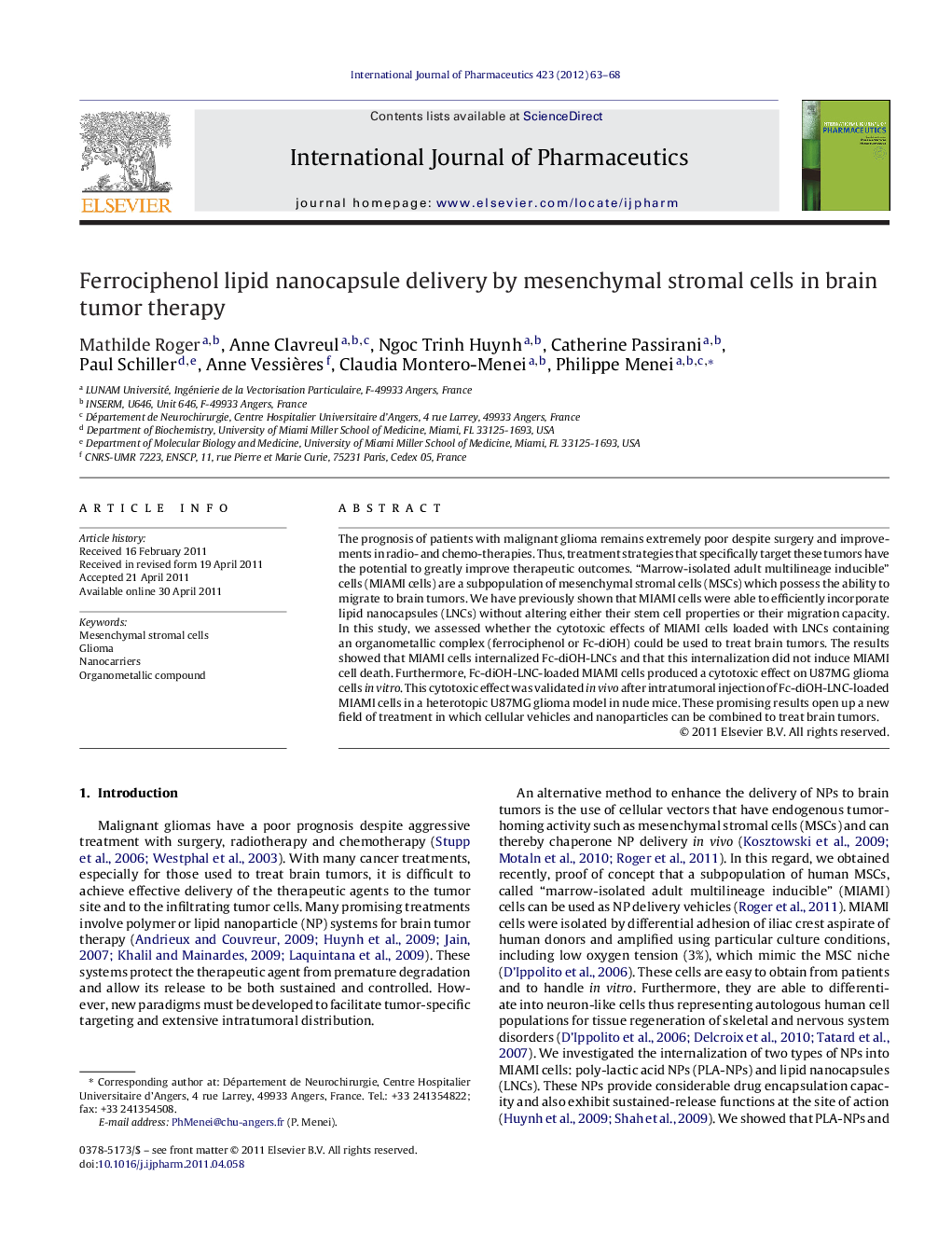| Article ID | Journal | Published Year | Pages | File Type |
|---|---|---|---|---|
| 2503047 | International Journal of Pharmaceutics | 2012 | 6 Pages |
The prognosis of patients with malignant glioma remains extremely poor despite surgery and improvements in radio- and chemo-therapies. Thus, treatment strategies that specifically target these tumors have the potential to greatly improve therapeutic outcomes. “Marrow-isolated adult multilineage inducible” cells (MIAMI cells) are a subpopulation of mesenchymal stromal cells (MSCs) which possess the ability to migrate to brain tumors. We have previously shown that MIAMI cells were able to efficiently incorporate lipid nanocapsules (LNCs) without altering either their stem cell properties or their migration capacity. In this study, we assessed whether the cytotoxic effects of MIAMI cells loaded with LNCs containing an organometallic complex (ferrociphenol or Fc-diOH) could be used to treat brain tumors. The results showed that MIAMI cells internalized Fc-diOH-LNCs and that this internalization did not induce MIAMI cell death. Furthermore, Fc-diOH-LNC-loaded MIAMI cells produced a cytotoxic effect on U87MG glioma cells in vitro. This cytotoxic effect was validated in vivo after intratumoral injection of Fc-diOH-LNC-loaded MIAMI cells in a heterotopic U87MG glioma model in nude mice. These promising results open up a new field of treatment in which cellular vehicles and nanoparticles can be combined to treat brain tumors.
Graphical abstractFc-diOH-LNC-loaded MIAMI cells injected in a heterotopic U87MG glioma model in nude mice induced significantly greater reductions in tumor volume and tumor weight than did intratumoral injection of HBSS.Figure optionsDownload full-size imageDownload as PowerPoint slide
